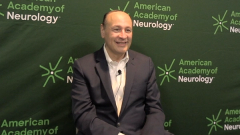
The Value of Targeted Educational Meetings
Pagan offered advice to early-career neurologists on how to stay current in the rapidly evolving field, emphasizing the importance of attending meetings and continuing education.
At the
In this episode, Pagan discussed the value of attending smaller, focused meetings and courses—such as the Advanced Therapeutics in Movement-Related Disorders program—for clinicians specializing in movement disorders. He emphasized the importance of staying current with advanced therapies, gaining hands-on experience, and maintaining access to cutting-edge treatments. Pagan also stressed that no patient with PD should ever be told there's nothing more that can be done, highlighting the ongoing advancements in therapy, care delivery, and the vital role of compassion throughout the disease spectrum.
Transcript below edited for clarity.
Fernando L. Pagan, MD: So there's sometimes smaller meetings that you can attend for a shorter period of time that focus in—so depending on what your concentration is. For example, when you're just getting into movement disorders, there's always a great course to really learn the phenomenology and the pathophysiology, how to make the diagnosis of patients. That's what we all call the Aspen course. With the the Movement Disorder Society—is really good at continuing this tradition. We've actually developed one, it's called Advanced Therapeutics in Movement-Related Disorders (ATMRD).
In this course, we showcase how to use all these new advanced therapies—so all the advanced therapies, hands-on experience, how to deliver, how to use them, how to get access to them because that's what helps you stay up in the game of being able to offer these medications. Not all programs are exposed to the same type of therapies. There can be certain restrictions. They may not have a DBS program in movement disorders, or they may not be actively in research—they don't get to see the future of new therapies and new drugs.
So, definitely attending these types of conferences—specifically for movement disorders—you can stay up on it. At least attending some of these meetings at least every couple of years, to make sure. But things are moving very, very quickly, and we are in an era where I personally feel, when you see a patient with Parkinson, "There is nothing else that we can do for you"—that phrase should never be used in today's world. There's always something that we can do for patients with PD.
Sometimes I hear that, and that may be the specific healthcare provider saying, “There’s nothing that I know what to do,” but there's always something that we could do for a patient with PD, even with a patient with dementia with Lewy body disease. So there are better therapies coming out, better ways to deliver medicines, and ultimately, just the compassion.
So sometimes even when there’s maybe no more medical, pharmacological therapy available, there’s always compassion, and there’s palliative care and even hospice care. So there’s always something we can deliver along the spectrum of the treatment of PD. So that phrase, “There’s nothing more that I can do for you”—I should hopefully never hear that again, because there’s so much that we could really help these patients with all along the spectrum of the disease.
Newsletter
Keep your finger on the pulse of neurology—subscribe to NeurologyLive for expert interviews, new data, and breakthrough treatment updates.











